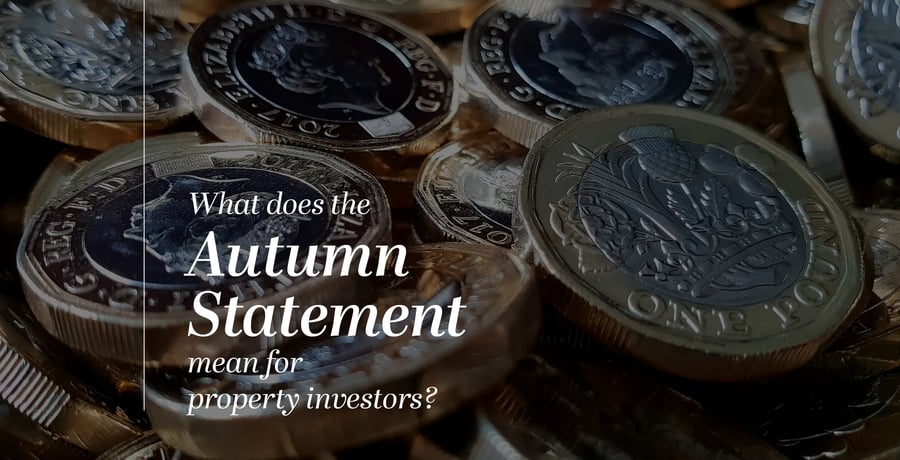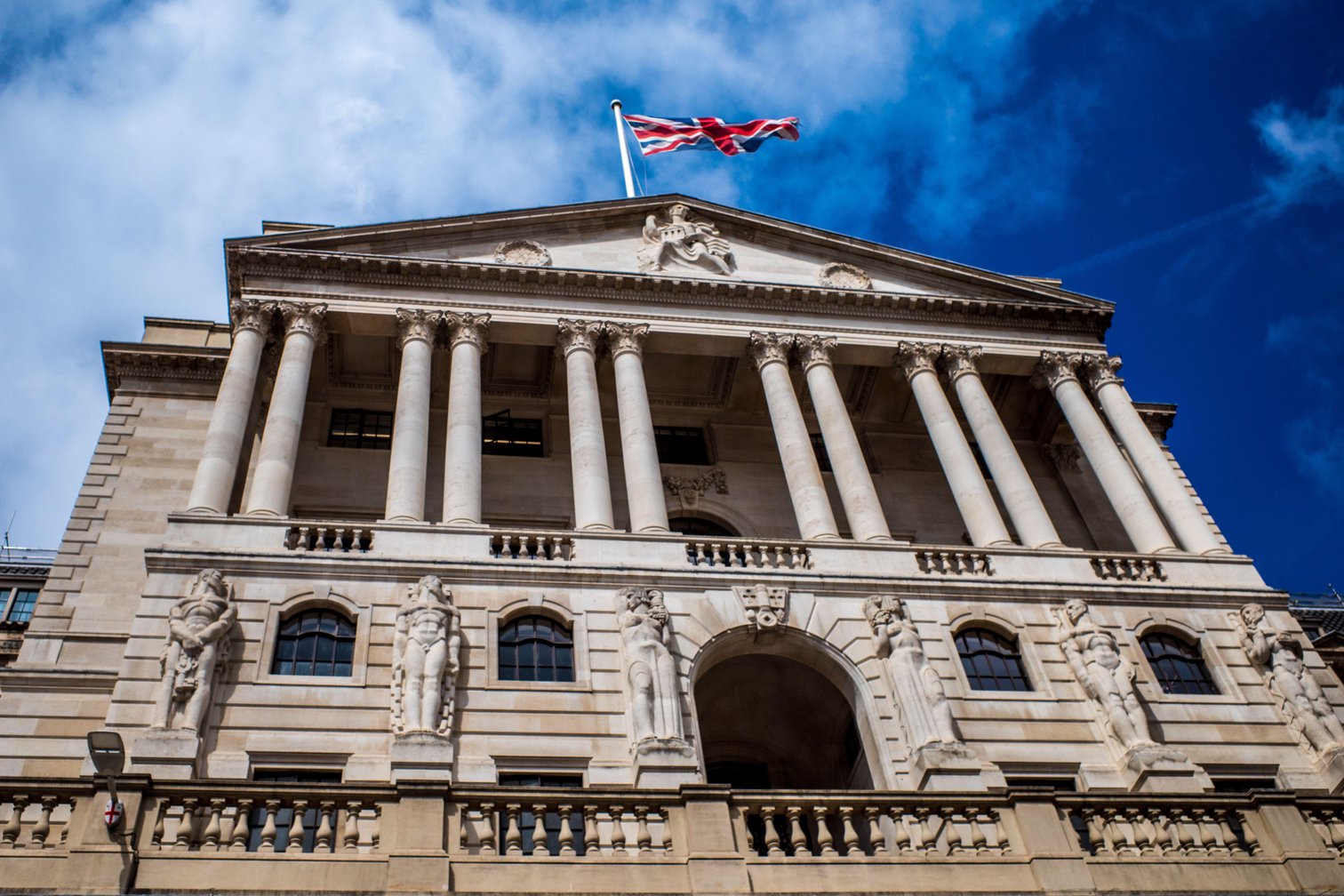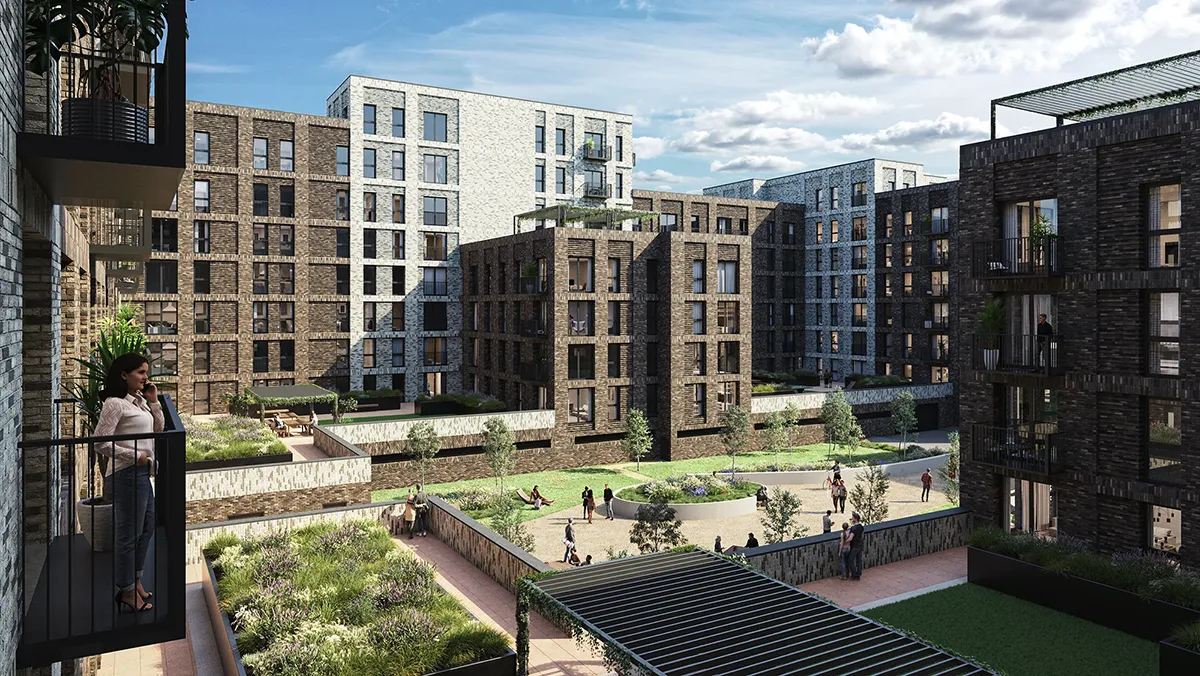What does the Autumn Statement mean for property investors?

UK Chancellor Jeremy Hunt has delivered his eagerly anticipated Autumn Statement. Hunt said the statement aimed to restore stability to the economy, protect high-quality public services and build long-term prosperity for the UK.
Hunt said that tackling inflation was at the top of his list of priorities to stop it “eating into paycheques and savings and disrupting business growth plans”.
So, what measures did the Chancellor announce to try to lower inflation, and how will property investors be affected? Despite tax rises dominating the headlines, the were a number of measures announced which will please property investors.
Hunt said that all taxpayers would be asked to contribute, but those with the broadest shoulders will be asked to contribute a greater share. There were a number of measures announced including a reduction in the threshold at which higher earners start to pay the 45p tax rate from £150,000 to £125,140, as well as a further two-year freeze on Income Tax and National Insurance and Inheritance Tax thresholds until April 2028.
The National Insurance contribution thresholds for employers will be fixed until April 2028 and will continue to mean that 40% of businesses will pay no NICS at all. The Divided Allowance will be reduced from £2,000 to £1,00 from April next year and £500 from April 2024. The Annual Exempt Amount in Capital Gains tax will also be reduced from £12,400 to £6,000 next year, and then lower to £3,000 from April 2024.
The Autumn Statement provided a further number of interesting points for property investors to be aware of. Most notably perhaps is the news that the stamp duty cuts announced by Kwarteng in his mini-budget will remain, but will be time-limited, ending on 31 March 2025. The tax-free allowance for capital gains will also be halved from £12,300 to £6,150 – which may impact smaller landlords and second homeowners.
However, there were some more positive announcements unveiled alongside Hunt’s plan to stabilise the economy. He confirmed that the government was pressing ahead with reforming previous EU rules to “spur investment from all over the world” saying that following negotiations between the Treasury and the Bank of England, Solvency II rules will be replaced. Hunt claimed that this will enable insurance firms to release billions of pounds of capital which they can invest in green energy and infrastructure projects. Amanda Blanc, chief executive of Aviva group estimated that these reforms will allow Aviva to invest over £25bn in UK projects across the next 10 years.
Further investment was announced to provide a boost to the UK economy with planned reforms in the life sciences industry working alongside Patrick Vallance, the government’s chief scientific adviser.
Round 2 of the government’s levelling up fund, which has previously seen significant investment in the North West of England, is also planned – with the same value as Round 1. Successful projects will be announced later this year.
Greater Manchester has also been promised the potential to explore “departmental-style settlements” at the next spending review, giving the region a greater level of flexibility and a chance to move away from lengthy bidding processes. It is hoped that these “trailblazer” negotiations will be completed in early 2023.
Significant new infrastructure projects including roads, trainlines and communities worth over £600bn will be built across the next five years. These projects include the HS2 rail link, Northern Powerhouse Rail as well as full-fibre broadband.
Councillor John Merry, Chair of Key Cities and deputy Mayor of Salford told React News: “ It was heartening to see that the government has returned to levelling up, and the funding that goes with it, to the centre of its legislative agenda.”
So, whilst it is clear that the near future looks like a challenging time for the UK economy, Hunt’s Autumn Statement has gone to great lengths to set the economy back on track. Despite the tricky times ahead, there is still hope that the glimpse of future sunlit uplands will make the pain worth enduring. It might not entirely feel like it now, but bullish times will return to the UK. Bank of England base rates will top out and inflation will start to fall which will enable taxes to be lowered.
With an election looming in the next two years, it could be predicted that this will all happen quickly, and so investors are advised not to leave it too late to snap up a property. With demand for rental property continuing to far out-strip supply – particularly in the luxury market - it seems that property investors will continue to receive very strong returns on their investments in both the long and short term. To find out more about our latest investment opportunities, you can contact the team.
Continue Reading


















